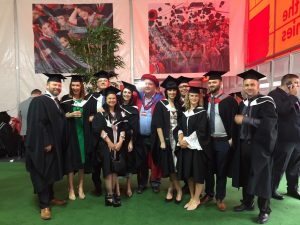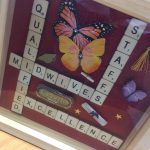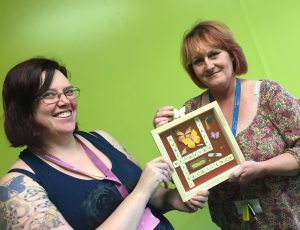Not so long ago, if you went to the doctor’s you were expected to keep quiet while you were examined. The doctor was interested in your observable symptoms, not in what you thought about them.
in modern healthcare practice, the patient’s own perspective is taken more seriously. In particular, patients with life limiting or long term conditions are encouraged to articulate their experience of living with the condition, to “Tell their story”. There are at least three good reasons for this change of emphasis.
First, and most important, “Telling the Story” can make a big difference to the patient. Patients report that if they can find words for their pain, or the way their condition makes them feel, then they sometimes feel much better. Illness can be isolating, and in “Telling the story” we can reach out. In addition, there is some evidence that, if somebody with a long term condition like diabetes or C0PD is given a chance to talk about how the disease affects their life, they are more likely to look after themselves properly.
Secondly, for clinicians the patient story can be a really important diagnostic tool. For example, if somebody says they have a bad back, the cause could be cancer; or depression; or weightlifting; or maybe a hundred other things. The doctor is more likely to reach the correct diagnosis if they let the patient tell their story.
Finally, patient stories have a really important part to play in informing the public and changing social attitudes. People are frightened of illness, and express that fear in different ways. I am old enough to remember when HIV/AIDs arrived in the 1980s and was referred to in the newspapers as the “Gay Plague”: public attitudes were transformed when courageous individuals came forward to tell their stories of living with HIV. At the moment, we are witnessing the same process happening around dementia, as people with dementia and their carers share their experiences.
In the School of Health and Social Care, we are collaborating with a colleague from the Journalism department to research how journalists represent “The Patient’s Tale” for a public audience, and the role they have in changing attitudes. Why do people often mistrust journalists, and why do they fear they will be misrepresented? How do they decide how to edit and re-tell the story to make it easier for their audience to understand? How do they make sure the story is still true to the patient’s experience? We hope as we explore these questions, we’ll gain some insights into how journalists can work with patients to “Tell the Tale”.
Dr Peter Kevern
![]() Associate Professor in Values in Care
Associate Professor in Values in Care









